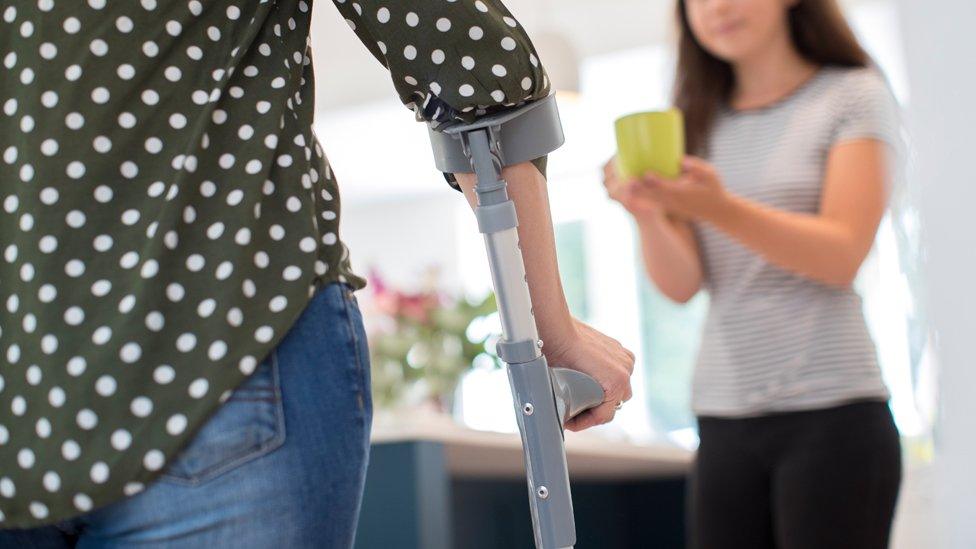Young carers not feeling supported by their schools says report
- Published
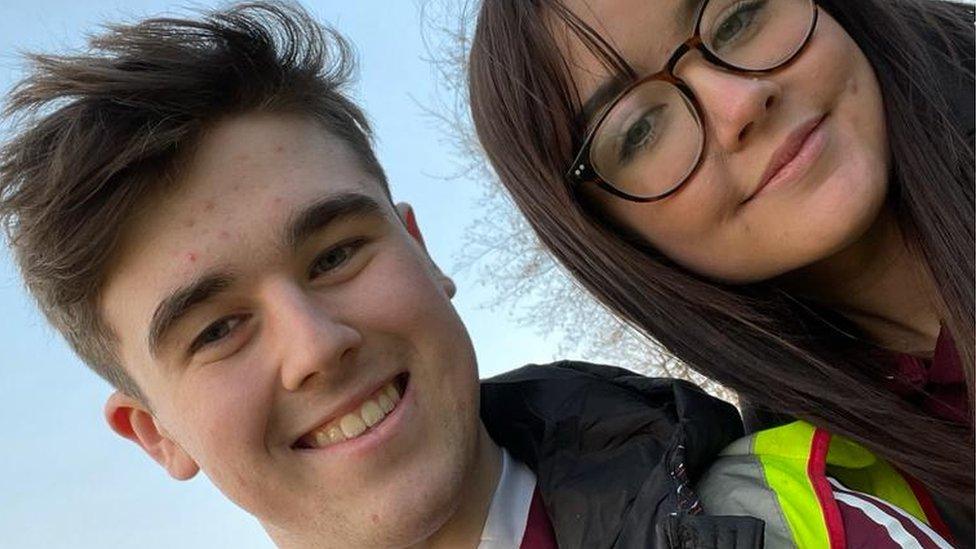
Diarmuid says he felt some teachers didn't care about his situation
"There are young people struggling with being a carer every day and not getting any recognition for it at all."
Diarmuid, 18, from County Armagh, has been helping to care for his brother, who has autism, since he was a child.
He now wants to highlight the struggles that young carers face in education.
New research shows only 16% of young carers across the Belfast, Southern and South-Eastern Health Trusts feel supported by their schools.
The report by Action for Children says a young carer takes on an average of 25 hours of unpaid work per week, external to help keep a household running.
In a recent survey, less than half of respondents - 43% - said their schools were aware of their caring role.
Two years ago, the charity formed its Young Carers Inclusion Group (YCIG) which is made up of young carers dedicated to improving support.
Diarmuid, who is chairman of the YCIG, said he was aged nine or 10 when his younger brother was diagnosed with autism.
School struggles
"I was always helping my brother, especially with social things, even before he was diagnosed," he told BBC News NI.
"I was constantly getting him to go out with me and go on walks because he doesn't really like going out of the house much.
"He'd just stay in the house by himself but I kind of pushed him to be more active and talk to more people.
"Plus we share a room as well. I'd help tidy up and help him with anything he'd normally struggle with, like mainly his communication."
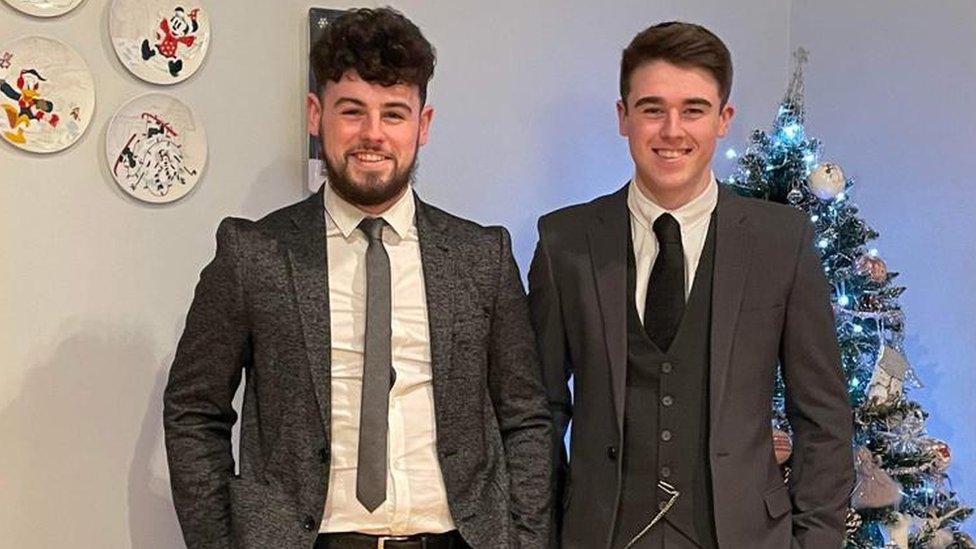
Diarmuid (right) says it wasn't easy juggling both school and being a young carer
Diarmuid admitted it was not always easy juggling both school and helping to care for his younger brother.
"I didn't really like my time at school and I did struggle because I couldn't quite keep up and I knew it was because I had more than just school going on," Diarmuid said.
"I felt like the school just saw me as any other student and that especially when I got to senior school they expected me to be like everyone else.
"That I'd have some silly reason for not doing my homework and be out with friends all weekend - but that wasn't me, I didn't have time to do stuff like that."
He added that his time at school could have been a lot easier had his teachers and fellow students understood the impact that being a young carer had.
"Some teachers when they found out about my situation, they didn't give it much thought or probably didn't know what a young carer was," he said.
"But it felt like a lot of them didn't care, so I thought, 'What's the point in me explaining?'
"I was the only recognised young carer in my year group but when I got to know people, I was able to count at least 15 others that were young carers, but didn't know their situation had a label."
Knowing the signs
Mark Coiley, Family Support Practitioner with Action for Children, said it was vital schools knew the signs of a young carer and were aware of students home situations.
"From helping mum into the shower before getting ready for school, to getting dad his medication, or helping little brother through an emotional overload - the morning is never slow and steady for a young carer," he said.
"A bad morning, a late night, an unexpected accident - all of these things add up and can mean when a young carer arrives at school, they're already exhausted.
"School is unfortunately their respite, and time away from the pressure they are under at home."
The report shows 63% of young carers want more flexibility and understanding from teachers, to take the stress out of the school day for them when things are difficult at home.
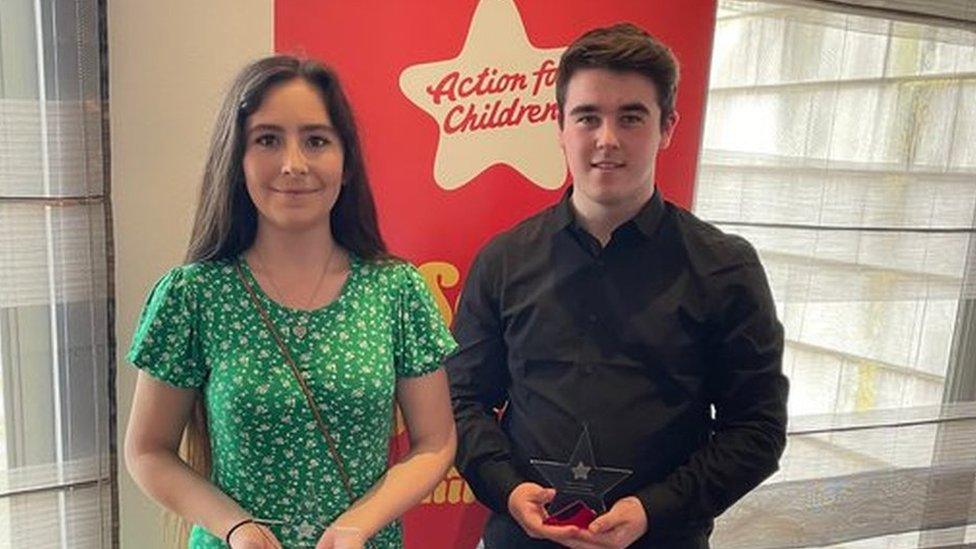
Diarmuid and fellow young carer Kirsty received awards for their work in the Young Carers Inclusion Group
'I would have dropped out'
Diarmuid said having one supportive teacher got him through his school experience.
"My form teacher from fourth year to the end of A-Levels, she was always there for me and I told her that," he said.
"She helped me through a lot of mental issues, she always checked in and I genuinely wouldn't have got through my A-Levels without her - I would have dropped out.
"But I know there's young carers in worse situations than me and a lot don't even make it through their GCSEs because of it."
As chairman of YCIG, Diarmuid said he was pushing for schools to introduce awareness programmes.
"If they've a child that's missed several homeworks in a row and they know they're a young carer, then they'll know it's better to pull them aside and ask if they're OK.
"Things like that, rather than scolding them or embarrassing them in class."
Aisling Reynolds, Services Manager for Action for Children Young Carers, said a school's awareness and support of a young carer can make a huge difference to their education experience and also their confidence and self-esteem.
"We've seen instances where a child is misunderstood and constantly told off for reasons beyond their control and it's pushed them away from school completely," she said.
The full report from Action for Children, external was published on Thursday.
Related topics
- Published20 November 2022
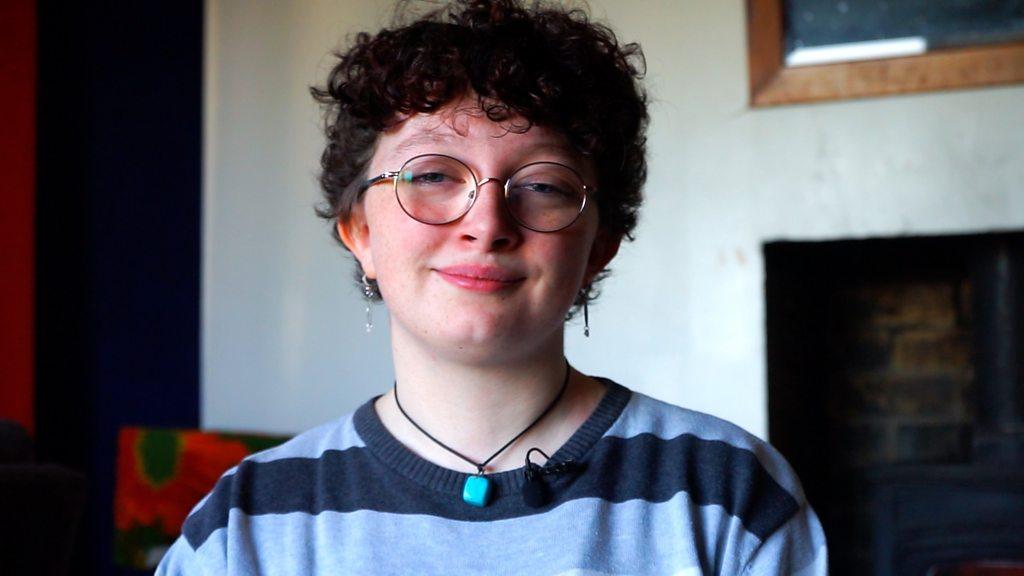
- Published12 November 2021
